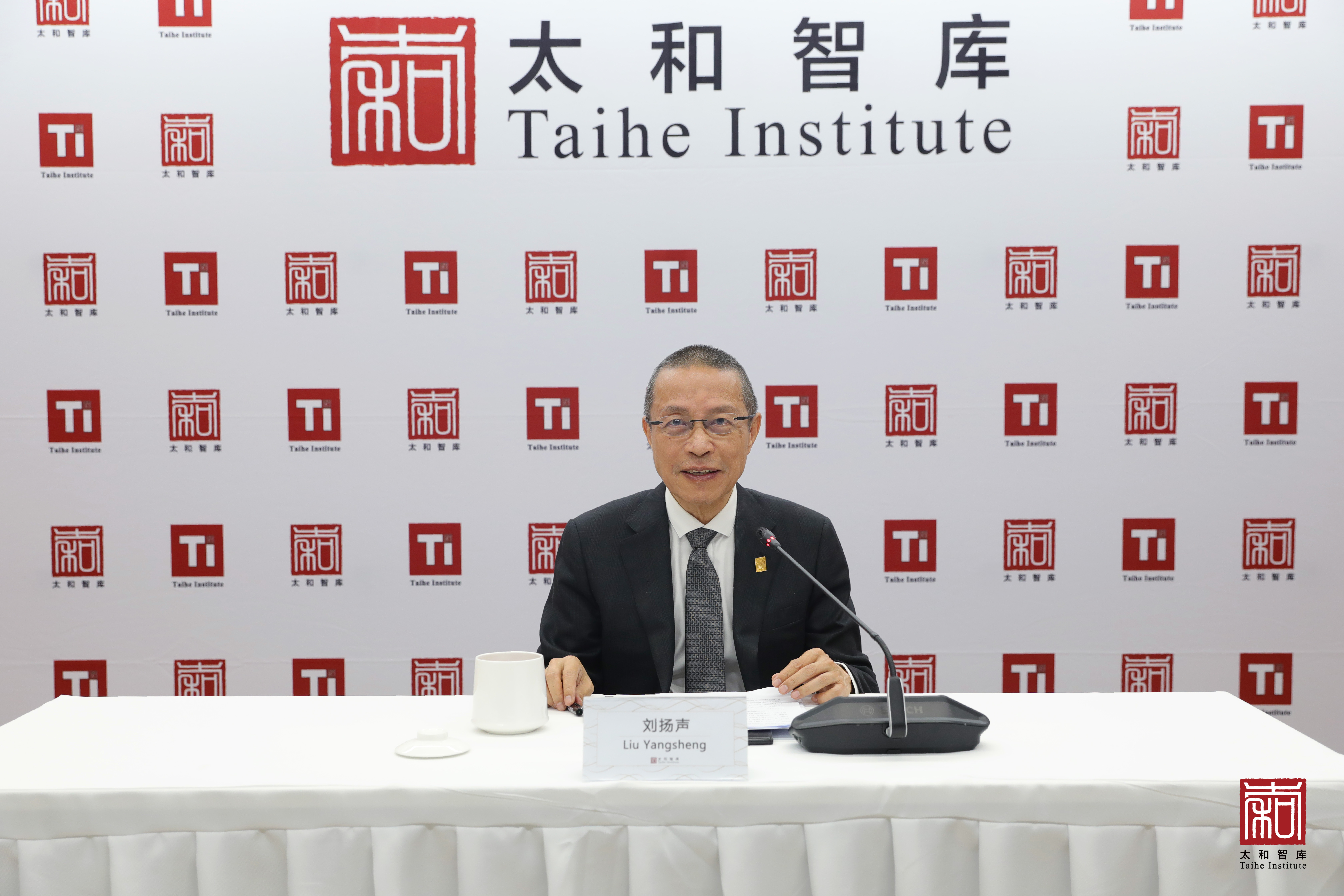On September 16, 2022, Mr. Liu Yangsheng, Senior Fellow of Taihe Institute, attended the 2022 Jeju Forum and gave a keynote speech at the session of “The Era of Techno-Politics: U.S.-China Tech Rivalry and South Korea’s Choice.” The key takeaways of Mr. Liu’s speech are summarized below.

China’s manufacturing industry leads the world for three major reasons: a comprehensive supply chain, an economy of scale created by the massive Chinese market, and successful management of complex supply chains. The objectives of the Chinese government today are to create even greater efficiencies in its manufacturing capability, develop trade relations with various countries and promote sustained economic growth.
Comparatively, the U.S. has been focused on suppressing the growth and development of China. Despite describing itself as a market economy, the U.S. has imposed numerous policies and measures which go against the fundamental basis of market economy. Given that China remains an important market for US enterprises, policies aiming at China will ultimately harm the U.S. itself as well. US sanctions on Chinese enterprises bring damage to not only China, but also global industrial efficiency.
The U.S. has been suppressing China’s technological advancement through issuing growing bans on China-U.S. technological and intellectual property trade, and forcing US companies to either “reshore” or “friend-shore,” which drives down the production efficiency and competitiveness for both the U.S. and its allies. These measures, however, have ended up accelerating and expediting China’s domestic technological development. The China-centered supply chain has a footprint throughout the whole of Asia. While the U.S. has brought existential challenges to many Asian countries, including the Republic of Korea, in its efforts to exclude China from the global supply chain, it should re-consider prudently the impact of its “friend-shoring” policy on the wider continent of Asia.
The U.S. will end up losing its technological competition and trade war with China, because its actions violate the basic business principle of pursuing “low cost and high efficiency.” The U.S. is trying to rebuild its domestic manufacturing industry, but its shortage of talent, underdeveloped supply chain, aging infrastructure, limited market, and the high cost of products will lead to its failure in building an economy of scale, which China is capable of, as well as low competitiveness in the international market.
Environmental protection can be a gateway to China-U.S. cooperation. At present, the global environmental crisis is mounting and extreme weather events and natural disasters across the world are becoming more frequent. The past 30 years have witnessed the rise of Asian countries and the increasing autonomy and independence of their economic and political policies. These countries refuse to be suppressed by the U.S and used as a pawn to contain China. Rather than engaging in geopolitical competition, regional countries should cooperate on pressing environmental issues. In this regard, addressing common environmental issues can be a starting point for better China-U.S. cooperation.

——————————————